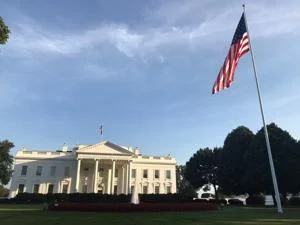The Federalist Society, a conservative and libertarian legal organization, hosted a webinar Tuesday discussing the effects within education on the ever-changing enforcement and interpretation of Title IX.
Robert Eitel, co-founder and president of Defense of Freedom Institute, hosted the webinar, “A Conversation on the Right: A Potential Solution to Title IX Regulatory Whiplash,” with legal experts to share their thoughts on the differing Executive Branch interpretations of Title IX over the years.
In opening up the discussion, guest speaker Tyler Coward, lead counsel for government affairs at the Foundation for Individual Rights and Expression, explained the history of the Administrative Procedure Act, a federal law that governs administrative justice procedures to ensure transparency, and changes from the Obama to the Trump administrations.
“Shortly after the Trump administration came into office … [they] announced that there was going to be federal notice and comment, APA rule making, on these issues, which was completely abandoned by the Obama administration,” Coward said. “One of the things we [FIRE] said at the time was that that document took the rights of both complainants and respondents very seriously. It created rights for complainants … setting up these due process protections to ensure that if they are going to go through an investigation and punishment, they should have to go through and provide basic due process protections.
“Among those protections was an expressed presumption of innocence. And that was freakishly uncommon that the university would give a student express presumption of innocence,” Coward said.
The next guest speaker — Sarah Parshall Perry, vice president and legal fellow at Defending Education — said allowing transgender athletes to compete in female sports has done violence toward women’s equality.
“[Title IX] a federal statute, only 37 words long, something that was really the crown jewel of the women’s liberation movement in the ’60s and early ’70s. To expand it to transgender status and gender identity did a significant amount of violence to the notion of women’s equality, not just within athletic contexts, but within all sex-separated offerings,” Perry said.
Perry went on to explain growing Title IX campus investigations have turned into a “kangaroo court,” an unofficial partial court that disregards legal norms and due process.
“There was no listing of qualifications of Title IX adjudicators online, nor even the process for which Title IX claims would be investigated online. That turned a lot of these campus investigations into what many of us referred to as kangaroo courts, with a series of roving promissars who would be judge, jury and executioner for both the accused and the accuser themselves,” Perry said. “So, really, what we saw was not just the sort of transgender expansion, and that conflict automatically and significantly with the notion of women’s equality, something which was ultimately the foundation for Title IX.”
Paul Zimmerman, senior counsel for policy and regulatory at Defense of Freedom Institute, talked about his organization’s Respect Equality in Sports, Privacy, and Education and Campus Transparency Act, or RESPECT Title IX Act. The proposed legislation aims to solidify the current protections of Title IX by making them law, rather than relying on administrative rules that can change with new administrations.
“All federal agencies that deal with education funding [are required] to set up rules, regulations and orders of general applicability to enforce Title IX requirements,” Zimmerman said.
Zimmerman said the institute’s proposal would deny federal agencies the power to issue rules and instead codifies rights in a law that won’t change over time.
With a recent lawsuit from the Department of Justice against the California Department of Education and the California Interscholastic Federation, Perry highlighted the fact that as long as states receive federal funding, they must accept the interpretation of Title IX by the U.S. Department of Education.
“California doesn’t need to accept federal funding, but when they do, they have to certify every single year that they will follow the interpretation that the Department of Education has laid out for Title IX, to wit, biological distinctions between male and female. At any point, they don’t have to continue to take federal funding,” said Perry. “I think ultimately, we will need a final judgment from the Supreme Court, and it may very well be coming as soon as the fall 2025 term.”






